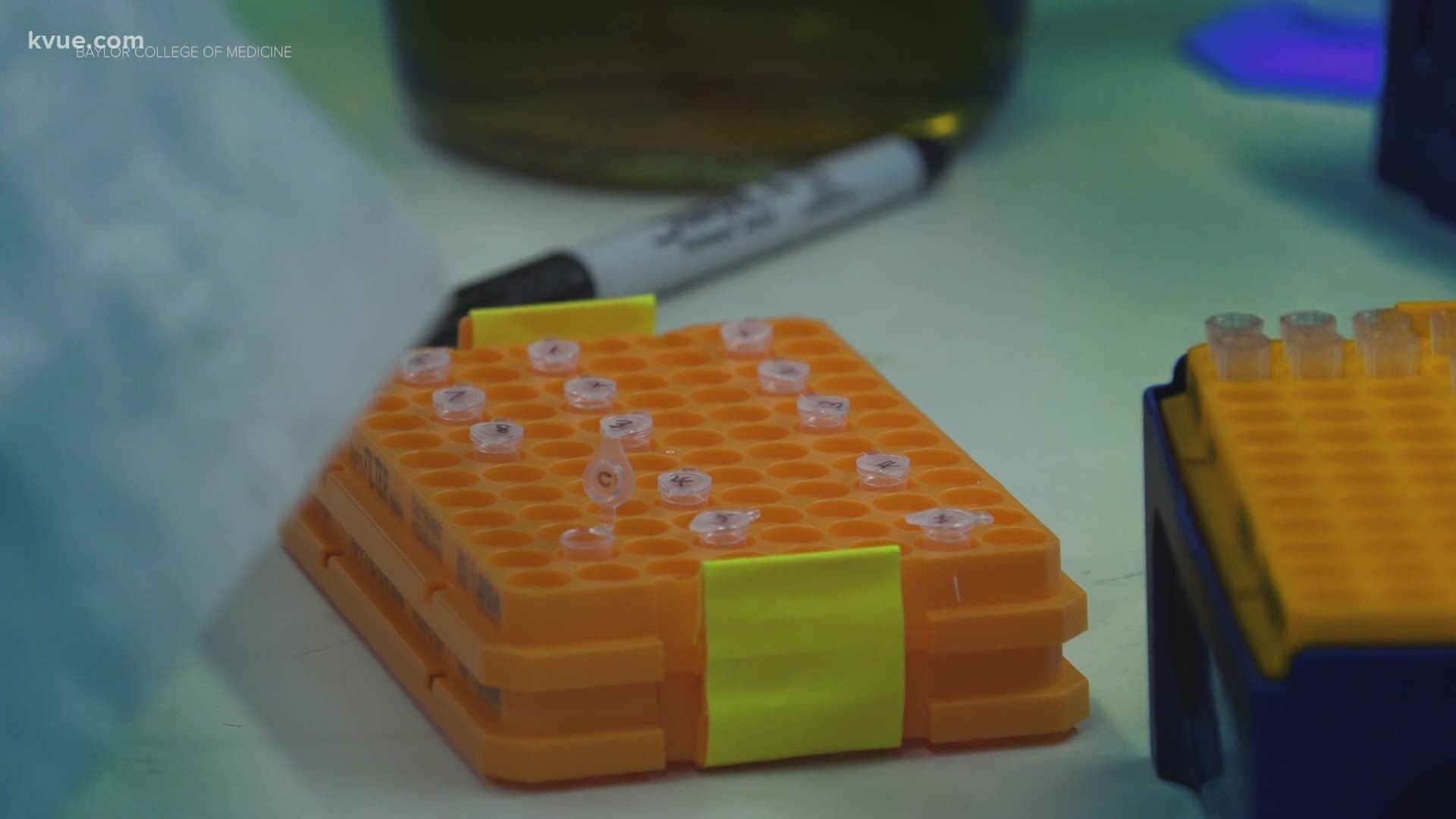HOUSTON, Texas — Inside the halls of Baylor College of Medicine Houston, Dr. Peter Hotez and his team rush to finalize work they started in 2011.
“We adopted a coronavirus vaccine program about a decade ago because it was in dire straits. Nobody cared about coronavirus,” Dr. Hotez, M.D., Ph.D., Dean for the National School of Tropical Medicine Baylor College of Medicine Houston, said.
The program looked to create SARS and MERS vaccines. Dr. Hotez said his team was in a good position to focus on the vaccine for SARS-coV-2, the virus causing COVID-19.
“We use a technology that's around 40 years old. The same one used to make the recombinant hepatitis B vaccine,” Dr. Hotez said.
The vaccine is in trial in India.
“We're not part of Operation Warp Speed because we're not a pharma company ... you have to have financial support,” Dr. Hotez said.
The Baylor vaccine is cheaper to make and sell.
Several worldwide organizations put money for Baylor to continue research and development, including the Coalition for Epidemic Preparedness Innovations (CEPI), Biological E Limited, India (Bio E), the Bill and Melinda Gates Foundation and the World Health Organization.
“The great thing about India is India’s got this tradition of making vaccines for the world. Serum Institute of India in Poona (now Pune) near Mumbai, is the world's largest producer of vaccines ... We think ours could come in as a low-cost global health vaccine for the world, which is going to be important because those mRNA vaccines probably are not going to filter to low- and middle-income countries anytime soon,” Dr. Hotez said.
The vaccine must be used globally.
“It feels really good to be able to make such a global contribution. At the same time, I’m frustrated that we can't bring that back into the U.S. easily because if we can make it, we can make a billion doses. It could solve a lot of problems here in the U.S. as a low-cost vaccine,” Dr. Hotez said.
Most of the vaccines will go to COVAX, a global initiative 190 countries joined but the U.S. decided to not take part.
“We'd love to be able to bring it back into the U.S., maybe as a pediatric vaccine for parents who may not be so eager to vaccinate their kids with the new-technology vaccines,” Dr. Hotez said.
Baylor works with Texas Children’s Hospital for Vaccine Development. They need a distributor inside Operation Warp Speed.
“We're trying to knock on doors and that sort of thing. You would think, right, with all the demand, people wringing their hands, 'Are we going to have enough vaccine?' It wouldn't be so tough. But, you know, because we're not a pharmaceutical company, that kind of thing falls through the cracks in that way,” Dr. Hotez said.
PEOPLE ARE ALSO READING:

